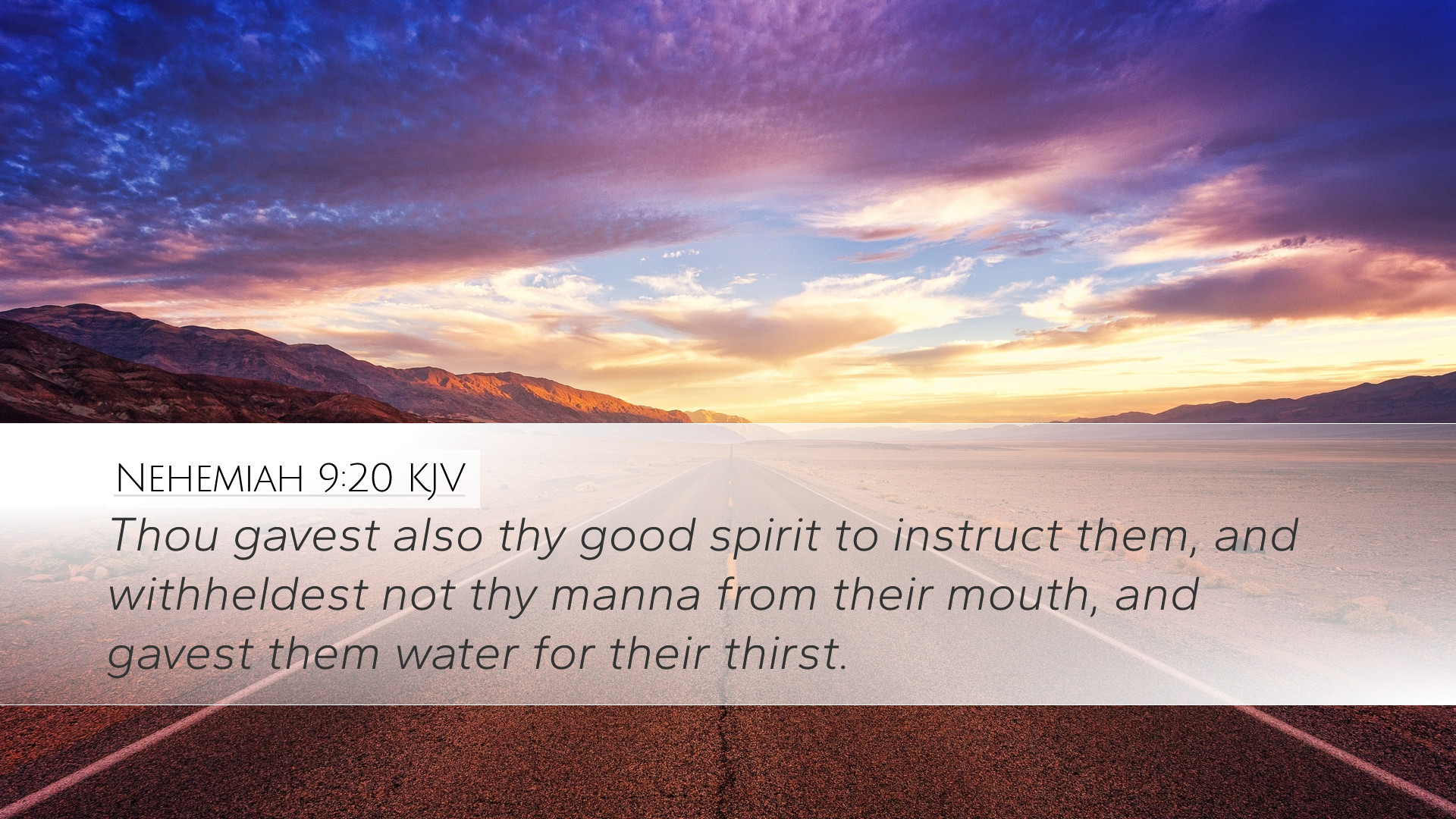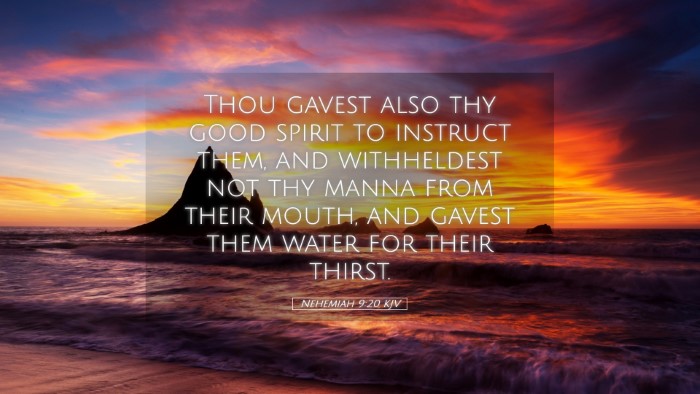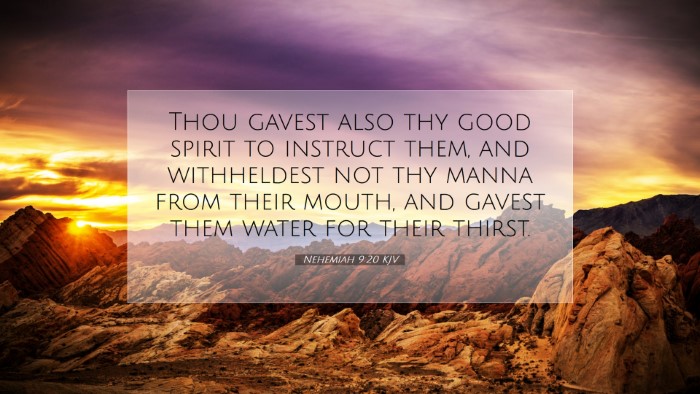Commentary on Nehemiah 9:20
Nehemiah 9:20 states: "Thou gavest also thy good spirit to instruct them, and withheldest not thy manna from their mouth, and gavest them water for their thirst." This verse captures a monumental moment in Israel's history, reflecting on God’s unwavering provision and guidance to His people. Here we explore various insights from historical commentaries that contextualize and elaborate on this passage.
Overview of Nehemiah 9
The ninth chapter of Nehemiah presents a communal confession, where the Israelites recount their history and acknowledge God's faithfulness amid their unfaithfulness. The chapter emphasizes the gracious actions of God despite Israel's repeated disobedience, highlighting themes of mercy and restoration.
Divine Instruction and Guidance
Matthew Henry notes the significance of God's good spirit, which serves as a divine instructor. This spirit, indicative of the Holy Spirit, is essential for imparting wisdom and guidance:
- Inspiration for Leadership: The spirit guided leaders such as Moses, providing them with wisdom to lead a rebellious nation.
- Illumination of God’s Will: The good spirit enlightens the hearts of believers, bringing understanding to God’s statutes and commands.
The Provision of Manna
Commenting on "withheldest not thy manna from their mouth," Albert Barnes elaborates on the nature of God’s provision:
- Sustenance in the Wilderness: Manna symbolizes God’s miraculous provision during Israel’s forty years in the wilderness, emphasizing reliance on divine sustenance.
- Spiritual Nourishment: Manna can also be seen as a type of Christ, illustrating how Christ is the bread of life that sustains spiritually hungry souls.
Water for Spiritual Thirst
The reference to water represents another aspect of divine provision. Adam Clarke highlights the importance of water in the desert experience:
- Quenching Thirst: Water signifies not only physical relief but also spiritual rejuvenation, illustrating how God meets both physical and spiritual needs.
- Christ as Living Water: Just as God provided water in the desert, Jesus Christ offers living water to those who thirst for righteousness (John 4:14).
Theological Reflections
This verse encapsulates critical theological components:
- God's Unchanging Nature: The consistent provision of the spirit, manna, and water demonstrates God's eternal faithfulness, contrasting Israel's fluctuating fidelity to Him.
- Mercy in Humanity's Need: God’s care extends even when people are unworthy, showcasing His grace that exceeds human failure.
- Call to Trust and Obedience: In recognizing God's provision, the Israelites are called to respond with faithfulness and a desire to obey God’s commandments.
Applications for Today
For pastors, students, theologians, and scholars, this verse offers profound applications:
- Encouragement in Ministry: Leaders are reminded that the provision of the Holy Spirit is vital in guiding communities toward understanding and living out God’s commandments.
- Fostering Dependence on God: Just as the Israelites depended on God for bread and water, modern believers are encouraged to rely on Christ as the ultimate source of spiritual nourishment.
- Emphasizing Community Confession: The communal aspect of Israel’s confession in Nehemiah encourages contemporary congregations to collectively acknowledge God’s faithfulness.
Conclusion
Nehemiah 9:20 serves as a powerful reminder of God’s providence and the necessity of His spirit in instructing and sustaining His people. The insights derived from ancient commentaries illuminate not only the historical context but also the enduring relevance of this passage within Christian theology and practice. Believers are encouraged to continually seek God's guidance, acknowledge His provision, and cultivate a lifestyle of gratitude and obedience.


